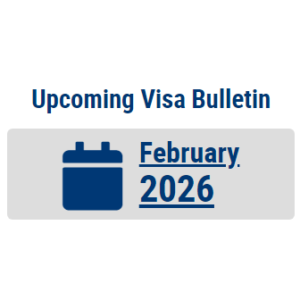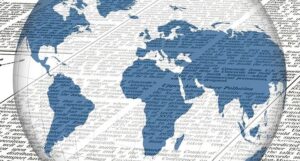Effects of Presidential Proclamation on DV Lottery

A number of countries whose natives have up to now been eligible for the DV Lottery have just been hit by an expanded U.S. travel ban which comes into effect later this month.
Background
Close to three years ago, U.S. President Donald Trump suspended and limited nationals of a number of countries from entering the United States. The ban imposed then, by means of Executive Order 13780 included nationals of Chad, Iran, Libya, North Korea, Somalia, Syria, Venezuela, and Yemen. (Immigration from those countries to the United States remains highly restricted till date, except for Chad – later removed).
In addition to the implementation of Executive Order 13780, the President ordered a review of whether foreign nationals seeking entry into the United States pose a security threat to the country; and if so, what relevant information was needed from each foreign government to that effect.
Relevant U.S. Government agencies were then charged with the responsibility of developing the criteria which foreign governments / countries were to be in compliance with. The criteria included:
– reliable national identity-management practices;
– national security and public-safety risk assessment; as well as
– relevant information-sharing with the U.S. Government.
Countries Whose Nationals are Affected
Based on the above-listed criteria, and after nearly three years of reviewing the “performance” of countries worldwide
by relevant U.S. Government agencies with the assistance of U.S. Embassies aboard, and a range of experts; including a period of diplomatic engagement on the issue, the President on last Friday, January 31, 2020, signed the Proclamation on Improving Enhanced Vetting Capabilities and Processes for Detecting Attempted Entry, intended to “update” the list of banned countries to include six additional: Burma (Myanmar) (AS Region); Kyrgyzstan (EU Region); Eritrea, Nigeria, Sudan, and Tanzania (of the AF Region) – totaling thirteen – until these countries “address their identified deficiencies”.
These countries are considered by the U.S. Administration to be among the worst “performing” in the world as far as being in compliance with the criteria set is concerned.
Three of the countries – Burma, Eritrea and Kyrgyzstan do not issue electronic passports – now an imperative to entering the Diversity Visa Lottery, while two others – Nigeria and Tanzania – are said to present a high risk of terrorist travel to the United States.
Two of the countries however “performed” better than others. The two, Sudan and Tanzania, are affected as it relates only to the Diversity Visa Program. Henceforth, they will feature on the list of non-eligible DV countries.
The ban, which comes into effect at 12:01 a.m. Eastern Standard Time on Friday, February 21, 2020, will affect only Immigrant Visa types, and NOT Non-Immigrant (Visiting).
How Will This Affect DV Lottery Entrants and Applicants?
The ban, instituted by the Proclamation will have a direct effect on the current, as well as upcoming DV Programs; and perhaps even more.
Firstly, DV 2020 Program
DV entrants and applicants from banned countries are currently hoping that at some point soon, the ban will be lifted. They lose nothing by hoping. But judging from experience, I personally do not expect the ban to be easily overturned. It took up to seven months before one country (Chad) was removed from the original list of banned countries; and since then – nearly two years on – the other seven remain banned.
Moreover, as mentioned below, the next “evaluation as to whether to continue, terminate, modify, or supplement any suspensions of, or limitations on . . .” will not take place until October 1, 2020.
It will therefore be a miracle for the ban on any of these countries to be lifted in the coming months.
Applicants to the DV 2020 program who hail from the affected countries will therefore generally not be granted Diversity Visas, after February 20, 2020, except for a very few “special” cases.
Even those who have their interview between now and February 20th have a slimmer chance of being granted DVs due to the “awareness” of the Proclamation by consular officers (COs) who may lean more toward denial than approval during visa interviews. Applicants from banned countries who had their interviews from the start of the fiscal year up to and including January 31st, when the Proclamation was issued, were indeed the luckiest ones.
“Natives” vs “Nationals”
There however seems to exist a “loophole” for some applicants who are nationals of banned countries, while at the same time natives of non-banned countries. As you may know, eligibility to the Diversity Visa Program is based on a person’s nativity (their place of birth), whereas the Proclamation “targets” “nationals” (citizens) of banned countries.
It is possible for one to be born in one country and be a national of another. For example, a Sudanese national born in Kenya who was selected in the 2020 Diversity Visa Lottery (based on his place of birth) can request consideration/waiver during his DV interview on grounds of his country of eligibility – Kenya – rather than that of his nationality – Sudan. Will see how COs deal with such cases.
Then DV 2021 Program
DV 2021 “hopefuls” from banned countries no longer have much to hope for. The Proclamation takes preeminence over the results to be released in May; there’re expected to be hardly any successful applicants from affected countries.
And finally, DV 2022 and possibly beyond
Each of the six countries has the possibility to meet set criteria, at which time they will be removed from the list of banned countries. However, and as indicated in the Proclamation, “it may take some time to identify and implement specific solutions to resolve the deficiencies”, which I personally don’t see happening before the DV 2022 Entry period (October – November 2020).
With the implementation of this Proclamation, the list of countries whose natives are eligible for participation in the DV Lottery is expected to be a bit shorter when it is released in September this year.
Is This the Last Travel Ban?
Depending on the outcome of the U.S. Presidential election in November, this “exercise” of banning (and possibly unbanning) certain countries may become recurrent, as the Proclamation suggests in the following excerpts:
“The Secretary of Homeland Security, in consultation with the Secretary of State ( . . .)”:
a. “shall on October 1, 2020, and annually thereafter, submit to the President the results of an evaluation as to whether to continue, terminate, modify, or supplement any suspensions of, or limitations on, the entry . . .”
b. “shall not less than every 2 years evaluate whether each country in the world sufficiently shares relevant information and maintains adequate identity-management and information-sharing practices . . .”
c. “may, at any time, recommend that the President impose, modify, or terminate a suspension or limitation on entry on certain classes of foreign nationals to protect the national interests of the United States.”
Considering the above, this Proclamation may just be the beginning of constant changes to the annual list of countries eligible for the Diversity Visa program, which largely remained unaltered in recent years.


